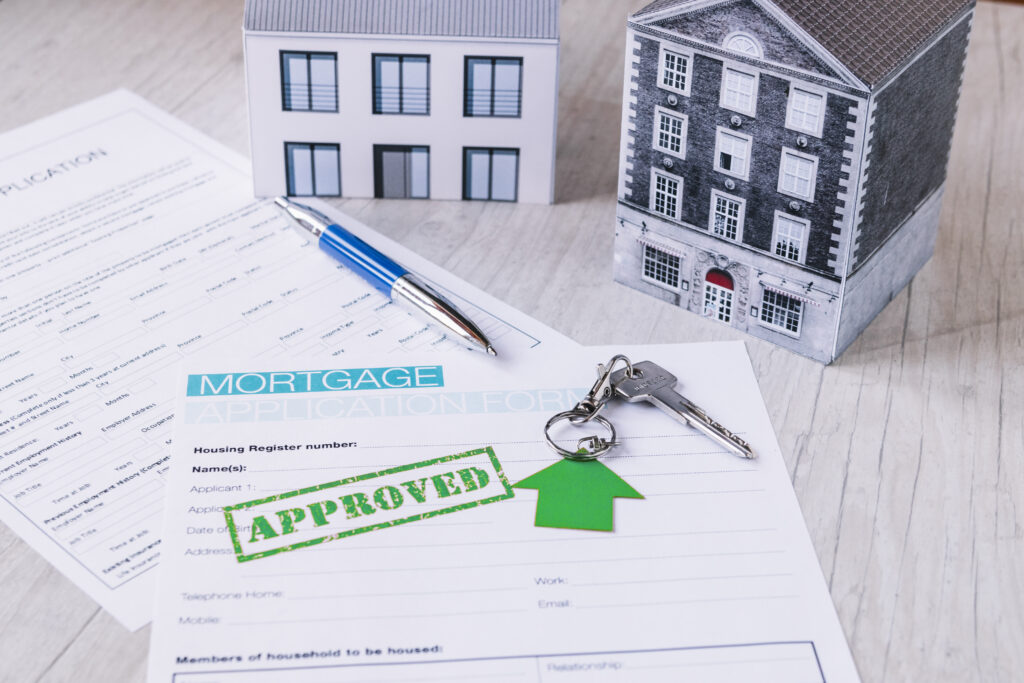
Are you a first-time homebuyer feeling overwhelmed by the daunting process of purchasing your dream house? No need to worry! We are here to help you with some crucial tips for first-time homebuyers that will make your journey smoother and stress-free.
Buying a house is a significant investment, and we understand how crucial it is for you to make the right decision. That’s why we have prepared this guide to provide you with helpful advice and insights. With our expert guidance, you can confidently navigate the complicated procedure and make your dream of owning a house a reality. Let’s dive into the tips for first-time homebuyers and make your home-buying experience a pleasant one!
Recognizing Your Financial Circumstance
Determine a Reasonable Budget
Find out how much you can afford before you go house hunting. Take into account your monthly spending, income, and current debts. To ensure your prospective mortgage payments are within your means, use online calculators to estimate the amount.
Save for a Down Payment
As soon as you can, begin setting aside money for a down payment. Although a 20% down payment is generally advised, certain programs permit smaller down payments. Remember, though, that a bigger down payment may result in smaller mortgage payments each month.
Verify Your Credit Score
Getting a good mortgage rate depends on having a high credit score. Get a copy of your credit report, then correct any mistakes or inaccuracies. For better loan options and interest rates, aim for a score above 700.
Related: The Cost of Living In Austin: Comprehensive Breakdown
Obtaining A Pre-Approved Mortgage

Acquire a Pre-Approved Loan
Obtain a mortgage preapproval before you begin looking for a home. This helps you understand your budget better and increases your appeal to sellers as a buyer.
Investigate Your Mortgage Options
Learn about various mortgage options, including fixed-rate and adjustable-rate mortgages. To select the best option for your financial circumstances, compare the terms, conditions, and interest rates offered by different lenders.
Finding the Ideal Residence

Determine Your Top Priorities
List the things you consider essential and desirable in a house. Take into account aspects such as size, number of bedrooms, location of work or schools, and so on. This will assist you in reducing your search options and concentrating on houses that fit your requirements.
Collaborate with a Real Estate Agent
An experienced real estate agent can assist you in locating appropriate properties, help you navigate the home-buying process, and negotiate on your behalf. Seek out an agent with a track record of success in the neighborhood market and good ratings.
Visit Open Houses
To gain insight into the local real estate market, visit open houses in the neighborhoods you have your eye on. When visiting properties, make sure to take notes and ask questions. This will assist you in making wise decisions.
The Offer Process and Deal Closing

Recognize the Offer Procedure
Together with your real estate agent, make a competitive offer on the house of your dreams. Think about things like the state of the market, the condition of the house, and recent comparable sales in the neighborhood.
Deal Sensibly
Be ready to work out a deal with the seller. This may entail concessions, repairs, or price reductions. To guarantee a fair deal, your real estate agent can offer insightful guidance during this process.
Home Inspection
Arrange a home inspection as soon as your offer is accepted. This will assist in locating any possible problems with the property. You might be able to request repairs or renegotiate if there are major issues.
Closing Procedure
Completing the sale and transferring ownership is part of the closing procedure. Be ready to pay for closing costs, title insurance, and the mortgage paperwork. Examine each document thoroughly, and if there are any questions, feel free to ask.
Extra Tips for First-Time Homebuyers
Emergency Fund
Create an emergency fund in addition to your down payment to cover unforeseen costs associated with homeownership, such as maintenance or repairs.
Examine the Costs of Owning a Home
Think about recurring expenses in addition to the mortgage, such as utilities, maintenance, property taxes, and homeowner’s insurance. Take these into account when creating your budget to make sure you can afford to become a homeowner.
Keep Up with Trends
Remain informed about government initiatives, interest rates, and real estate markets that could be helpful to first-time homebuyers. This will enable you to make wiser choices all along the way.
Have patience
Purchasing a home can be an emotionally draining and time-consuming process. Remain patient and avoid making a hasty decision or settling for a property that doesn’t suit your needs.
Future Resale Value
Take into account your new home’s resale value even if you intend to live there for a long time. Select a home with features that will appeal to a wide spectrum of prospective purchasers and in a desirable area.
Related: 10 Things To Know Before Moving To Austin
Look Into the Areas You Want To Live In

1. The Quality of Schools
The quality of the local schools is a major factor for many prospective homeowners. The reputation of the local schools can affect property values even if you are not a parent or do not intend to have children. When choosing a neighborhood, it’s important to take the local education system into account because access to highly regarded schools is frequently linked to higher home prices.
2. Walkability
Think about the neighborhood’s walkability, or how simple it is to walk to local facilities and services. A walkable neighborhood can help you save money and time on your commute. Seek places where you can walk to parks, supermarkets, eateries, and public transportation.
3. Parking
Having access to parking is important, particularly if the property you’re considering doesn’t have designated parking. Examine whether street parking is available, especially on the weekends and in the evenings when residents are more likely to be at home. Ask about any restrictions on street parking or permit requirements as well. Parking spots may be limited in some neighborhoods, which may affect your convenience and possibly your choice to relocate there. Look into nearby rental parking options if parking is an issue.
4. Property-Based Taxes
There can be significant differences in property taxes between neighborhoods. Examine the rates of property taxes in the communities you are thinking about moving to. Your real estate agent can provide you with useful details about this. It’s crucial to account for higher property taxes in your budget since they may result in higher monthly housing expenses. But bear in mind that property taxes fund neighborhood services and facilities, so weigh the overall benefits of your taxes.
5. Rates of Crime
Examine the crime statistics of potential neighborhoods. Crime statistics and trends can be obtained from local police departments and online databases. Take into account variables such as theft, vandalism, and burglary rates. Homeowners place a high premium on safety, so learning about a neighborhood’s safety record will help you make an informed choice.
Related: Exploring the 13 Best Neighborhoods Near East Austin
6. Upcoming Development
Examine any upcoming construction or infrastructure initiatives in the region. Positive or negative effects on property values may result from new developments. If the neighborhood is about to get improvements, like new parks, shopping malls, or transportation infrastructure, it might become more desirable and valuable.
7. Environment of the Community
To get a feel of the neighborhood’s vibe, visit it during various times of the day and week. Take note of the community’s general atmosphere, a community, and how well-kept the properties are. Visit community centers or go to local events to get a feel for the community and see if it suits your tastes.

FAQs: Tips for First-Time Homebuyers
Why is it hard for first-time homebuyers?
Due to their restricted financial resources, having to navigate complicated real estate procedures, and the competitive nature of the housing market, first-time homebuyers frequently encounter difficulties.
__________
What is the lowest down payment on a house?
The lowest possible down payment on a home can be as little as 3% to 3.5% of the purchase price; these loans are usually available through specific government-backed loan programs, such as FHA loans.
__________
What is the biggest factor when buying a home?
When purchasing a home, the price is frequently the most important factor to take into account. Other considerations include location, house size, property taxes homeowner’s association (HOA) involvement, and available facilities.
__________
What is the biggest factor when buying a home?
A strong budget, enough savings for a down payment, and an emergency fund to cover unforeseen expenses will help you be more financially resilient throughout the home-buying process and lessen financial stress.
__________
How much do most first-time house buyers put down?
Most first-time purchasers make a down payment of between 3% and 5% of the total cost of the property.
__________
Summary of Tips for First-Time Homebuyers
In conclusion, purchasing your first home is a significant step, but it doesn’t have to be difficult. First-time homebuyers should follow these tips to make the process go more smoothly. Establish a reasonable spending plan, put money aside for a down payment, and review your credit report. Obtain a mortgage preapproval to gain a better understanding of your spending. When investigating neighborhoods, take into account parking, walkability, and schools. When negotiating and inspecting, exercise patience. Enjoy the process because every choice you make will shape your ideal house. You’ll feel more at ease negotiating the thrilling world of first-time homeownership and creating a home that is uniquely yours with these simple-to-follow guidelines.



